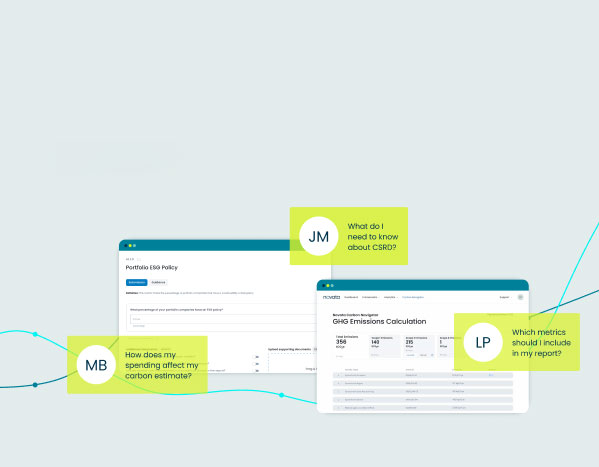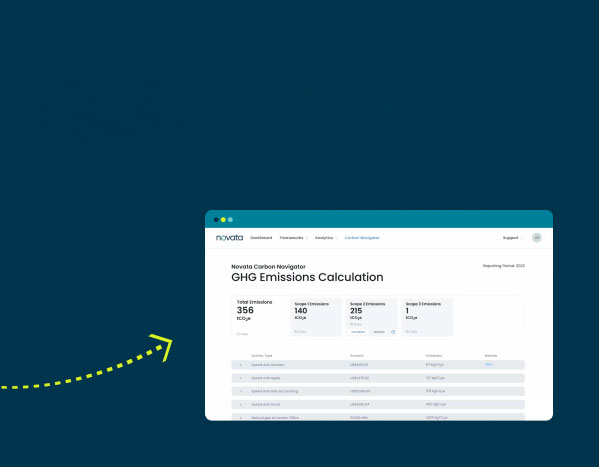The ESG Data Convergence Initiative (EDCI) recently announced three new additions to its metrics list as part of the 2024 reporting cycle. The three optional metrics are all in the newly created Net Zero category:
- Strategy: Does the portfolio company have a decarbonization strategy or plan?
- Target: Does the portfolio company have a short-term (i.e., 5 to 10 years) greenhouse gas (GHG) emission reduction target?
- Ambition: Does the portfolio company have a long-term net zero goal?
What does this mean for private equity firms reporting to EDCI? At a minimum, GPs will now need to ask their portfolio companies these net zero-related questions on an annual basis. The addition of these metrics indicates a welcome recognition that private equity plays a major role in creating a more sustainable future. By prompting investors to ask portfolio companies about their net zero strategies, targets, and ambitions, EDCI positions investors as a stakeholder in the decarbonization and reduction journeys of each company.
EDCI’s new metrics are part of its framework of 18 metrics across ESG themes — such as GHG emissions, diversity, and employee engagement — that GPs report on annually based on portfolio company data. The Novata platform offers an integration that will programmatically send the data that portfolio companies report directly to EDCI’s API. This integration makes it easy to meet EDCI reporting requirements as part of annual ESG monitoring.
Understanding EDCI’s New Metrics
Strategy
The first net zero question asks if the portfolio company has a decarbonization strategy or plan and whether or not there is board oversight. EDCI defines a decarbonization strategy as a “time-bound action plan that clearly outlines how an organization will pivot its existing assets, operations, and entire business model toward a trajectory that aligns with climate science recommendations.” Decarbonization at the portfolio company level is essential to emissions reductions and GPs can support this process by including the development of a decarbonization strategy in 100-day and value creation plans. This metric also asks whether or not the strategy has board oversight at the company level, which is crucial for ensuring buy-in and making progress.
Target
The second question asks if the portfolio company has a short-term GHG emission reduction target. Short-term is defined as within 5 to 10 years of the date that the target was set. EDCI gives the answer option to indicate if the target is aligned with the Paris Agreement — a legally binding international treaty on climate change. A Paris-aligned target is one that commits to achieving net zero emissions by 2050 in order to limit global warming to no more than 1.5ºC. Targets should be ambitious, but achievable based on the company’s business model, internal carbon price, and leadership buy-in. EDCI does not require that the Science-Based Target initiative (SBTi) validate targets, but SBTi does offer sector guidance for companies on how to get started and set targets.
Ambition
The third question asks whether or not the portfolio company has a long-term net zero goal. If the company does not have a long-term goal, they are asked if they plan to establish a goal within the next two years. EDCI also asks if the goal is aligned to a pathway, such as net zero emissions by 2050 or sooner. Tracking progress is a key aspect of any transition pathway. The Net Zero Investment Framework (NZIF) calls for investors to engage with portfolio companies that account for 70% of financed emissions in material sectors, primarily through a corporate net zero transition plan.
Measure the Metrics that Matter
As the transition to a low-carbon economy continues, Novata recommends firms develop a clear perspective on how their portfolio will manage risk, embrace new opportunities, and create value in a changing environment. More firms are incorporating net-zero considerations into their portfolio engagement, such as requiring decarbonization strategies or net-zero emissions goals. To track progress on these commitments, GPs should collect GHG emissions data from their portfolio companies on at least an annual basis as part of ongoing ESG monitoring during ownership.
Novata’s Carbon Navigator offers an intuitive, easy-to-use UX with definitions and step-by-step guidance to calculate GHG emissions at your portfolio companies. The Navigator also meets global regulatory requirements, such as the Sustainable Finance Disclosure Regulation. Our in-house experts also provide dedicated support throughout the process, with tailored data collection workflows, kickoff and regular check-ins, and data quality review. Learn how Novata can support your firm and portfolio companies with carbon data management.






